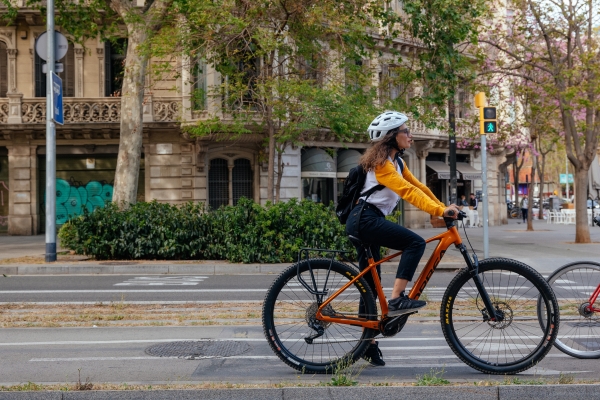AUTONEWS

Barcelona declares war on bicycles and scooters
From February 1, 2025, the new “organization of circulation for pedestrians and vehicles” will come into force in Barcelona, with the changes mainly aimed at bicycles and electric scooters. The changes aim to discipline drivers of this type of vehicle in urban use, a measure that, according to the authorities of the capital of Catalonia, is due to the excessive number of serious accidents they cause, involving other vehicles and pedestrians.
From the second month of the new year, the use of a helmet is mandatory, as is having lights at the front and back, infractions that will be penalized with fines of $100. Users authorized to ride these scooters on public roads are also restricted, as from February 2025, only those over 16 years of age can drive them and, if the vehicles belong to an urban mobility company, they must be duly provided with third party liability insurance.
More importantly, especially when it comes to avoiding accidents, the places where electric bicycles and scooters can be used have been considerably reduced. To begin with, the maximum speed limit is 25 km/h and only on streets and roads, therefore more powerful models that do not comply with European homologation (imported online) will not be allowed. They are also not allowed to ride on sidewalks or in pedestrian zones (fines of €500), but exclusively on cycle paths, as an alternative to streets and roads, and when cycle paths are designed on a sidewalk, the maximum speed drops to 10 km/h. h, twice the speed of a walking pedestrian (5 km/h), precisely the same maximum speed that is allowed in parks.
Madrid has bet on the ban...The war against the irresponsible use of bicycles and electric scooters has already been an issue to be faced by the capital of Spain, Madrid. Local authorities, also due to excessive abuse and accidents with many serious injuries and some deaths, adopted a series of measures in September to limit the damage.
The solution found by the Madrid city council, after some negotiation, was to completely ban rental scooters from circulation. The license to use the 6,000 rental scooters that operated in the city was withdrawn, as they “disappeared” in October, a month after the legislation was implemented.
The decision to reduce the number of these vehicles on the road came only after the three largest rental companies, Lime, Dott and Tier Mobility respectively, failed to ensure that the small electric vehicles would not be parked improperly. Nor did they ensure that they would be able to spread them in the planned manner throughout the city, in order to serve all residents.
The authorities intended to guarantee a ratio of 10 scooters within a radius of 10,000 inhabitants, which implied ensuring that, within the M30 — a kind of Lisbon CRIL that surrounds the entire city of 3.2 million, compared to just 1 million for Lisbon — there would be only 3600 scooters out of the current 6000, with the remaining 2400 being spread throughout the rest of the municipality. But the companies in question were never able to meet these objectives, which led Madrid to move forward with a total ban. Exceptions to the new regulations are few and limited to children under 12, who can ride on sidewalks as long as they are accompanied by adults, with the age limit rising to 14 on streets where there are no cycle lanes. Parking without fines on sidewalks is also prohibited if carried out in areas close to schools and hospitals.
mundophone

Nenhum comentário:
Postar um comentário